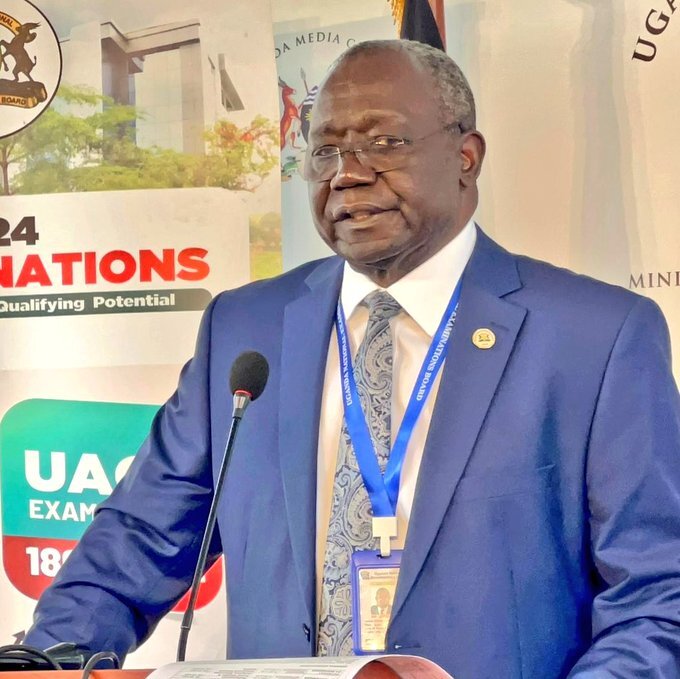98 percent Candidates Earn UCE Certificates in CBC Exams

The Uganda National Examinations Board (UNEB) has officially released the 2024 Uganda Certificate of Education (UCE) results, marking a significant milestone as the first cohort of candidates under the Competency-Based Curriculum (CBC) sits for their examinations.
A total of 359,417 candidates registered for the 2024 UCE examination, with 357,120 (99.4%) sitting for the exams. Of these, 350,146 candidates (98.05%) met the required competency level and qualified for the UCE certificate. Their results will be indicated as Result 1 on their transcripts and certificates.
However, a small percentage of candidates did not meet the conditions for the UCE certificate, with their results categorized under Result 2 and Result 3.
Dan Odongo, the UNEB Executive Director says unlike the previous grading system that ranked students into divisions, the new competency-based assessment presents achievement levels in letter grades: A (Exceptional), B (Outstanding), C (Satisfactory), D (Basic), and E (Elementary). A candidate qualifies for a UCE certificate if they attain at least a competency level grade of D in one subject.
He said that the assessment combines scores from Continuous Assessment (CA) conducted at the school level (20%) and the End-of-Cycle examination (80%). Additionally, Project Work is now an integral part of the assessment and is reported separately on the certificate, showcasing students’ problem-solving abilities and creativity.
The general performance across compulsory and large-entry subjects was mixed. Exceptional performance was observed in subjects such as Art and Design, History and Political Education, and Agriculture, where a significant proportion of candidates attained higher grades. However, Sciences, particularly Physics and Chemistry, recorded higher proportions of candidates scoring at the Elementary level.
Reports from scorers indicated that many candidates struggled to interpret practical scenarios in Science subjects and apply their knowledge to real-life situations. Similarly, in English and other languages, inadequate vocabulary and difficulty in paraphrasing were common challenges.
According to Odongo, the total of 743 Special Needs Education (SNE) candidates sat for the 2024 UCE examination. Of these, 703 (95.3%) qualified for the UCE certificate, with all candidates in the Deaf category successfully meeting the certification requirements.
Similarly, all 27 candidates from Uganda Government Upper Prison, Luzira, and 11 inmates from Mbarara Main Prison who sat for the exams qualified for the UCE certificate, marking a positive achievement for education among incarcerated learners.
The transition to the new curriculum has not been without hurdles. UNEB cited challenges such as inadequate IT infrastructure in many schools, delays in submission of Continuous Assessment scores, insufficient laboratory facilities, and resistance to curriculum change by some institutions. Additionally, examiners raised concerns over workload and remuneration, prompting UNEB to consider training more scorers and reviewing payment structures.
He further stated that despite these challenges, UNEB has commended all stakeholders for their commitment to ensuring the successful rollout of the new competency-based assessment system. The Board emphasized the need for continued training, especially for teachers handling lower secondary classes, to align instruction methods with the competency-based framework.
The release of these results marks a new era in Uganda’s education system, focusing on holistic learner assessment and equipping students with practical skills for real-world applications. As UNEB refines the assessment process, schools and educators are urged to embrace the changes and ensure effective implementation of the Competency-Based Curriculum.


Comments are closed.